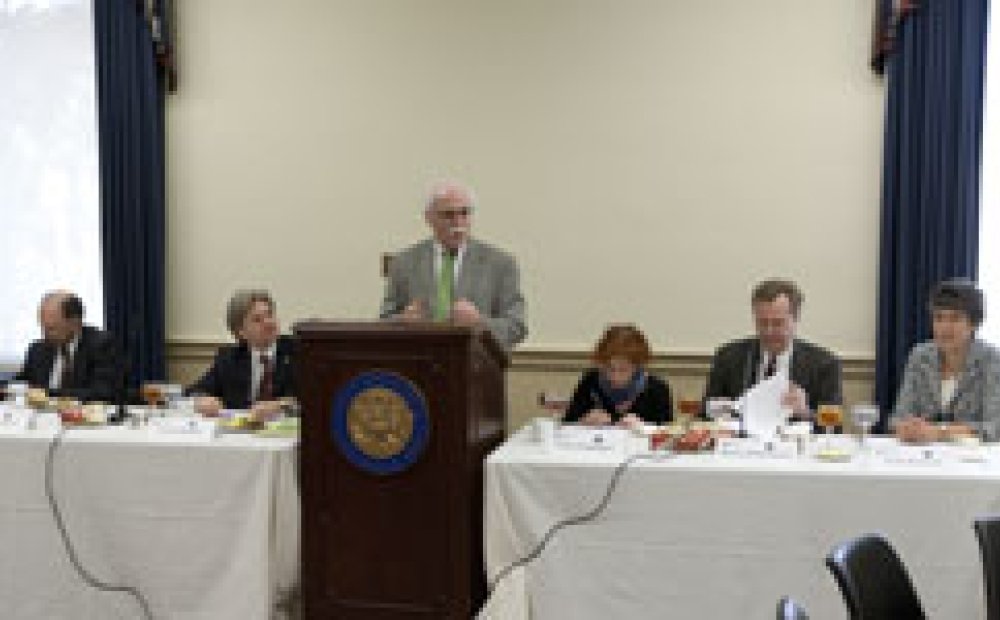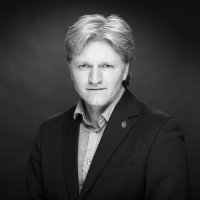Russia's Rule of Law Challenge: Implications for U.S. Policy

Twenty years after the fall of the Soviet Union, Russia continues to struggle with the implementation of the rule of law. President Dmitry Medvedev has made its reform his signature initiative, using it as a means to distinguish his presidency from that of his immediate predecessor, Vladimir Putin. Wilson Center on the Hill and the Kennan Institute joined the Henry M. Jackson Foundation on 2 May 2011 in hosting a panel to discuss the challenges facing Russia's justice system and their implications for U.S. foreign policy. Lara Iglitzin, Executive Director, Henry M. Jackson Foundation, moderated the talk and brought her expertise on Russian human rights policy to the discussion.
William Pomeranz, Deputy Director, Kennan Institute, began the talk by providing some context for Russia's recent record on the rule of law. Since 1993, and the installation of the current constitution, political leaders have been stuck in the quagmire of Russian legal reform. The lofty ideals of separation of powers and an independent judiciary have been mired in the difficulty of reform, revealing a gap between theory and practice. Pomeranz suggested that Vladimir Putin's "power vertical" administrative legacy has caused rule of law reform to flounder. Medvedev has publicly distanced himself from Putin's strategies, but his own actions, including lengthening the presidential terms and ending direct elections of regional governors, have strengthened the "power vertical." Pomeranz noted that the problems of the judicial system are closely tied to overly centralized power, and that reforms would also need to "attack corruption to help the rule of law." At the moment, Pomeranz pointed out, there isn't the political will for a serious investigation into corruption, so the rule of law and legal reform will suffer accordingly.
Tanya Lokshina, Deputy Director, Human Rights Watch, Moscow, focuses on Chechnya and the Northern Caucasus and echoed Pomeranz's observation that there have been some improvements in Russia's legal culture, but that "the culture remains hostile for reform." She noted that President Medvedev's inspiring official rhetoric have not been backed up with sufficient "concrete steps." Lokshina spoke of the situation in Russia's turbulent North Caucaus describing it as a profound human rights crisis. She explained that Russia has "struggled to succeed in its battle against insurgency," employing tactics such as indiscriminate detentions, enforced disappearances, extrajudicial executions and torture. These lawless counter-insurgency methods, according to Lokshina, served to widen the gap between the authorities and the public and played into the hands of insurgents, making it easier for them to recruit new allies among the frustrated youth. She cited the Chechen governor Ramzan Kadyrov's free hand in the republic, which he runs as a state within a state completely outside of Russia's legal framework, as a particularly dramatic example of unaccountable leadership and the Kremlin's failure to achive true stability in the North Caucasus. She also stressed that the state agencies in charge of investigating rights abuses in Chechnya admit to being "incapable" to carry out their duties and acknowledge own helplessness in the face of abduction of local residents by law enforcement officials. Lokshina also cited numerous examples of blatant human rights abuses by law enforcement officials in Dagestan as evidence that the disdain for the rule of law is not limited to Chechnya, and requires a willing government to intervene and drive real change. Lokshina noted that the winter Olympic games, scheduled to take place in Sochi in 2014 made the security situation in the south of Russia an especially serious challenge for the authorities.
Anton Burkov, Management Systems International, Moscow, described how human rights concerns could better fit into the existing judicial framework. Russia's ratification of the European Convention on Human Rights provides just such a vehicle for incorporating stronger human rights standards into the Russian courtroom. He pointed out that any international treaty ratified by the Russian Federation is part of the Russian legal system and supersedes local or federal law. In practice, however, there is "not much happening in the district court level to domestically implement international human rights standards." Burkov's meetings with judges revealed that many on the bench know the standards in the Convention, but do not apply them frequently. Lawyers likewise admit that they do not refer to the Convention in their arguments because they are concerned it would not help their cases. The seemingly intractable reluctance to apply human rights standards makes implementing legal reform difficult. Burkov pointed to the education system as a potential answer. While law students currently receive no training on the applicability of international treaties, he hopes that collaboration and a broader scope of education can produce a generation of lawyers and judges that are not only aware of the more protective standards, but also possesses the willingness to apply them.
Richard Sakwa, University of Kent, classified the apparent autocratic tendencies of Russian governance as characteristic of a "dual state." Russia has established institutions and legal frameworks capable of transparency since 1993, but informal relations within these institutions have undermined transparency and accountability. The result has been two pillars "evenly in balance." The stalemate between promise and practice has been a "big reason for the degradation of the rule of law," Sakwa noted, but he sees the recent dismissal of a pre-trial detention case by the Supreme Court as a sign that the balance may be shifting. Medvedev has demonstrated a "willingness" to change by empowering human rights commissions, but their ineffectiveness shows the difficulty of achieving true reform. Although there is some impetus for reform, it faces serious opposition. Sakwa also noted that Russia will be hesitant to receive advice from the United States. "Our expectation should not be that high," he warned, since it is difficult for the United States to criticize other countries' judicial systems while the Guantanamo Bay facility remains open. Congress has little cause to "impugn Medvedev for his rhetoric," but it needs to highlight individual instances of corruption and abuse to make sure that the international community recognizes the true situation and the potential for future reform.
John Coit, Wilson Center on the Hill
Kent Hughes, Director, Wilson Center on the Hill
Speakers
Professor, Department of Politics and International Relations, University of Kent, U.K.


Director and Principal Attorney, Strategic Litigation Center
Hosted By

Kennan Institute
The Kennan Institute is the premier US center for advanced research on Eurasia and the oldest and largest regional program at the Woodrow Wilson International Center for Scholars. The Kennan Institute is committed to improving American understanding of Russia, Ukraine, Central Asia, the South Caucasus, and the surrounding region though research and exchange. Read more
